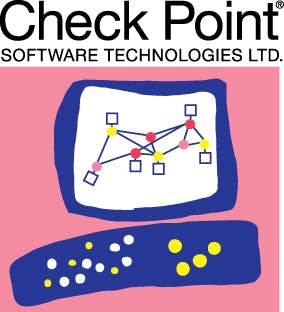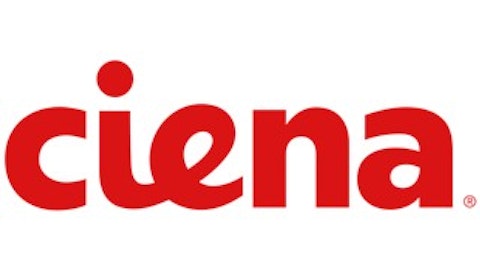Are you interested in a business that has kept increasing revenue, EPS, and cash flow for the past 10 years? In addition, this business seems to be the most profitable business while employing no debt in its operations. It is Check Point Software Technologies Ltd. (NASDAQ:CHKP). It ranks the second in network security, behind two technology giants: Cisco Systems, Inc. (NASDAQ:CSCO) and Juniper Networks, Inc. (NYSE:JNPR). Let’s dig deeper to see whether or not Check Point Software is a good investment opportunity at its current price:
One of the Top Three Network Security Players
Check Point Software Technologies Ltd. (NASDAQ:CHKP) is an Israeli-based software developer and provider of network security technologies, with its revenue coming from the sales of network and data security products. $837.4 million, or 62% of the company’s total revenue, was generated from software updates, maintenance and subscriptions, while products and licenses generated around $503.5 million in revenue in 2012.
Additionally, the company is quite dependent on a small number of distributors. Around 58% of sales came from its top 10 distributors. The largest contributor represented around 18% of total revenue, while the second largest one accounted for 17% meaning two distributors account for more than 1/3 of the company’s sales. According to Infonetics Research, Cisco was still the leader in the network security market, with Check Point and Juniper Networks, Inc. (NYSE:JNPR) fighting for the second biggest position in this industry globally.

In the past 10 years, revenue, EPS and cash flow for Check Point Software Technologies Ltd. (NASDAQ:CHKP) have kept growing consistently. Its revenue increased from $433 million in 2003, to $1.34 billion in 2012. In the same period, EPS has grown from $0.96 to $2.96. Free cash flow has seen a 10.76% compounded annualized growth rate for the past 10 years, from $288 million in 2003, to around $800 million in 2012.
The Most Profitable Company
In terms of profitability, Check Point has consistently generated double-digit ROIC that has fluctuated in the range of 15.75% to 24.26%. Over the past 12 months, the ROIC was 19.3%. Compared to Cisco Systems, Inc. (NASDAQ:CSCO) and Juniper, Check Point seems to be the most efficient among the three.
| % | Check Point | Cisco | Juniper |
| Operating margin | 54.48 | 22.4 | 7.1 |
| Net margin | 45.42 | 19.72 | 4.3 |
| ROIC | 19.33 | 12.75 | 1.87 |
We can clearly see that Check Point beat both Cisco Systems, Inc. (NASDAQ:CSCO) and Juniper Networks, Inc. (NYSE:JNPR) in terms of margins and return on capital. Its operating margin and net margin were two times higher than those of Cisco. In the past 12 months, Check Point generated as high as a 45.2% net margin, while Cisco’s net profit margin was only 19.72%. Check Point’s return on invested capital of 19.33% was much higher than Cisco’s ROIC of 12.75%. Juniper, with the lowest margins and return on capital, is the least profitable company among the three. Furthermore, even with the most profitable operation, Check Point didn’t use any leverage, whereas Juniper and Cisco employed some debt, with 0.1x and 0.3x in debt/equity ratio, respectively.
Valuation-wise, Cisco Systems, Inc. (NASDAQ:CSCO) has the cheapest valuation compared to both Check Point and Juniper Networks, Inc. (NYSE:JNPR). With a total market cap of over $111 billion, Cisco is valued at only 6.1x EV/EBITDA. Juniper, a much smaller company with only $10.9 billion in total market cap, is valued the most expensive, at 17x EV/EBITDA. Check Point Software Technologies Ltd. (NASDAQ:CHKP) seems to be quite reasonably valued at 11.53x EV/EBITDA.
My Foolish Take
With a significantly high profit margin, return on capital, a conservative capital structure, and a reasonable valuation, Check Point seems to be a nice investment opportunity for long-term investors at its current trading price.
The article This Network Security Company Is Definitely a Value Buy originally appeared on Fool.com and is written by Anh HOANG
Copyright © 1995 – 2013 The Motley Fool, LLC. All rights reserved. The Motley Fool has a disclosure policy.





